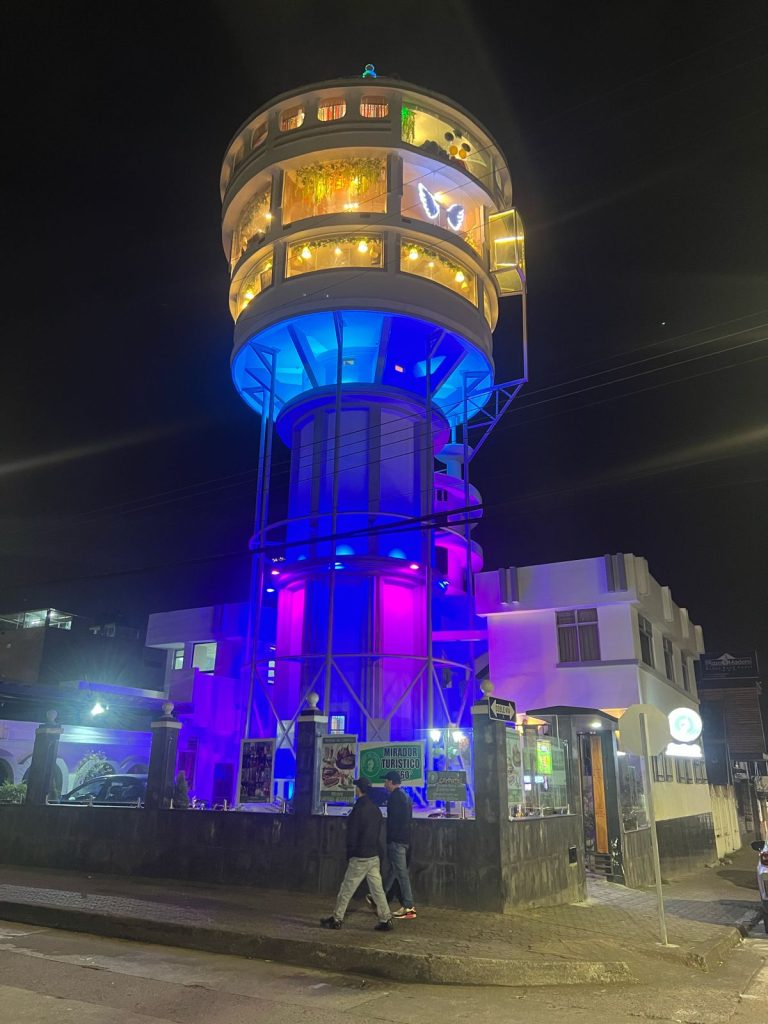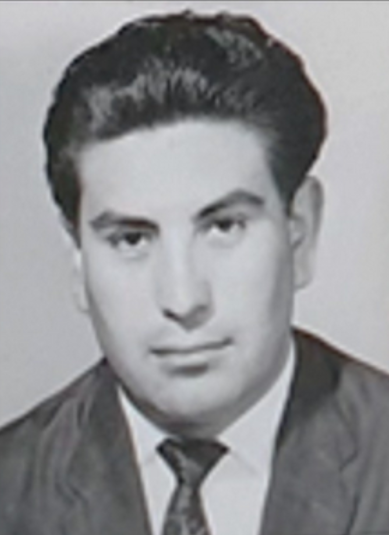Guido Mera Vera (Tixán, January 25, 1934 – Riobamba, July 14, 2003) was an Ecuadorian writer, poet, and physician, known for his prolific literary work spanning poetry, novels, essays, and short stories. Educated in medicine at the University of Guayaquil and institutions in the United States, he balanced a career in medical research with a passionate commitment to literature, producing eleven published books including Góndolas de Espuma, El Minuto Eterno y la Envoltura del Ser, and Murallas de Cristal. His works, marked by philosophical skepticism and social reflection, earned him national acclaim, and he won the first prize in the 1958 Juegos Florales of the University of Guayaquil. Celebrated as a cultural patron, Mera Vera also served as a key member of the Casa de la Cultura Ecuatoriana, leaving an enduring legacy in Ecuadorian literature and intellectual thought.
Early Life and Education
Guido Mera Vera was born on January 25, 1934, in Tixán, Ecuador, in the province of Chimborazo. Raised in a religious environment, he attended school under the guidance of the Mercedarian community. He later graduated from Colegio Maldonado in Riobamba before pursuing higher education at various prestigious institutions. Mera studied medicine at the University of Guayaquil and furthered his studies in the United States at Columbia University in New York. He also completed certifications at the Educational Commission for Foreign Medical Graduates (ECFMG) in Pennsylvania and gained practical experience at Booth Memorial Hospital in New York.
Literary Career
Mera Vera dedicated over fifty years of his life to writing, producing poetry, essays, novels, and short stories. His literary legacy comprises eleven published works, including Góndolas de Espuma, Parcelas de Amor para un fantasma atrabiliario, El Minuto Eterno y la Envoltura del Ser, Caminos de Protesta, Antología, Solamente lo Humano, Don Belisario, Sentencias del Destino, El Secuestro, Murallas de Cristal, and Remembranzas de aquel Guayaquil. His writing is characterized by a humanistic and philosophical skepticism, themes of social justice, and a profound exploration of the human condition. Mera Vera’s work has been celebrated for its intellectual depth and universal appeal, with critics lauding his “torrential ideas,” “avalanche of emotions,” and “blend of protest and tenderness.” In 1958, he received first prize in the Juegos Florales of the University of Guayaquil, marking a significant early accomplishment in his career.
Mera was also an active member of the literary section of the Casa de la Cultura Ecuatoriana “Benjamín Carrión,” Chimborazo branch, and was involved with the Ecuadorian and Latin American Society of Writers.
Themes and Influence
Mera Vera’s literary works often grapple with existential themes, the complexities of human relationships, and philosophical reflections on society. He described his philosophy as an “interpersonal humanism” that emphasizes the interconnectedness of individuals through a shared identity of “You,” “I,” and “We.” His style was noted for its complexity, and his colleagues and critics often compared him to literary figures such as Anton Chekhov for his unique blend of literary and medical knowledge.
Medical and Scientific Career
In addition to his literary achievements, Mera Vera had a notable career in medicine. He was deeply involved in advancing medical knowledge in fields such as psychiatry, gynecology, and medical informatics. His scientific curiosity and commitment to innovation in medicine earned him a place in various scientific societies in the United States.
Legacy and Cultural Impact
Mera Vera’s influence extended beyond his publications and medical research. Known for his cultural patronage, he used his wealth to support the arts and literature in Ecuador, particularly within his community in Riobamba and the broader Chimborazo region. His passion for intellectual exchange and cultural preservation led him to fund and participate in numerous local literary initiatives. Mera Vera traveled widely, gathering influences and ideas from around the world, which he integrated into his writing and projects. Notably, he inspired the construction of the Torre de Cristal (often referred to as the Torre de Baños) in Baños, Ecuador—a structure intended as a creative retreat and cultural landmark tied to his novel Murallas de Cristal. In 1996, the tower was briefly converted into a discotheque, giving rise to a local legend about a mysterious dancer rumored to have a devilish tail. After Mera Vera’s death, the tower was abandoned but was eventually restored by his daughter, Rocío Elizabeth Mera Alvarado. Today, it stands as a popular tourist attraction, offering panoramic views from its 33-meter height and featuring a café that serves local visitors. This transformation into a scenic and cultural destination has cemented the Torre de Cristal as a tribute to Mera Vera’s impact on Ecuadorian literature and his legacy of cultural enrichment.

Personal Life and Final Years
Mera Vera lived a life marked by intellectual curiosity and creativity. He was known for his unique personality—both eccentric and hospitable—and left an enduring impact on those around him. He passed away on July 14, 2003, at the age of 69, and was buried in Riobamba. After his death, his family continued to honor his memory and contributions, particularly through the preservation of his works and the Torre de Cristal.
Selected Works
- Góndolas de Espuma
- Parcelas de Amor para un fantasma atrabiliario
- El Minuto Eterno y la Envoltura del Ser
- Caminos de Protesta
- Antología
- Solamente lo Humano
- Don Belisario
- Sentencias del Destino
- El Secuestro
- Murallas de Cristal
- Remembranzas de aquel Guayaquil
References
- Cultura en Ecuador. La obra literaria del escritor Guido Mera Vera by Gabriel Cisneros Abedrabbo. Retrieved on November 11, 2024. Click to view
- Google Books. Murallas de cristal by Guido Mera Vera. Retrieved on November 11, 2024. Click to view
- Biblioteca de la Casa de la Cultura Ecuatoriana. Antología poética Guido Mera Vera by Guido Mera Vera. Retrieved on November 11, 2024. Click to view
- Biblioteca de la Casa de la Cultura Ecuatoriana. Sentimientos del destino don belisario by Guido Mera Vera. Retrieved on November 11, 2024. Click to view
- Biblioteca de la Casa de la Cultura Ecuatoriana. El secuestro by Guido Mera Vera. Retrieved on November 11, 2024. Click to view
- Biblioteca de la Casa de la Cultura Ecuatoriana. Murallas de cristal by Guido Mera Vera. Retrieved on November 11, 2024. Click to view
- El Heraldo. Leyenda atrae turismo en la Torre de Baños. Retrieved on November 11, 2024. Click to view
- Radio Mundial. Bayardo Ulloa: Presentación de Figuras en la Historia de Riobamba y Chimborazo de Carlos Ortíz A. Retrieved on November 11, 2024. Click to view

